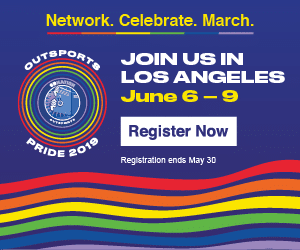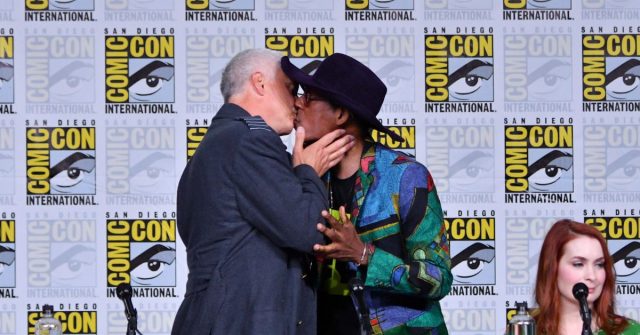
It’s not every day that brings the opportunity to write a lede sentence like “This week, the most insightful thought about LGBTQ sports came from a cast member of the British TV show, ‘I’m a Celebrity… Get Me Out of Here.’”
But such was the case thanks to British actor John Barrowman, who American TV fans may know best from playing Captain Jack Harkness on “Doctor Who” and “Torchwood,” and The Dark Archer Malcolm Merlyn in “Arrow.”
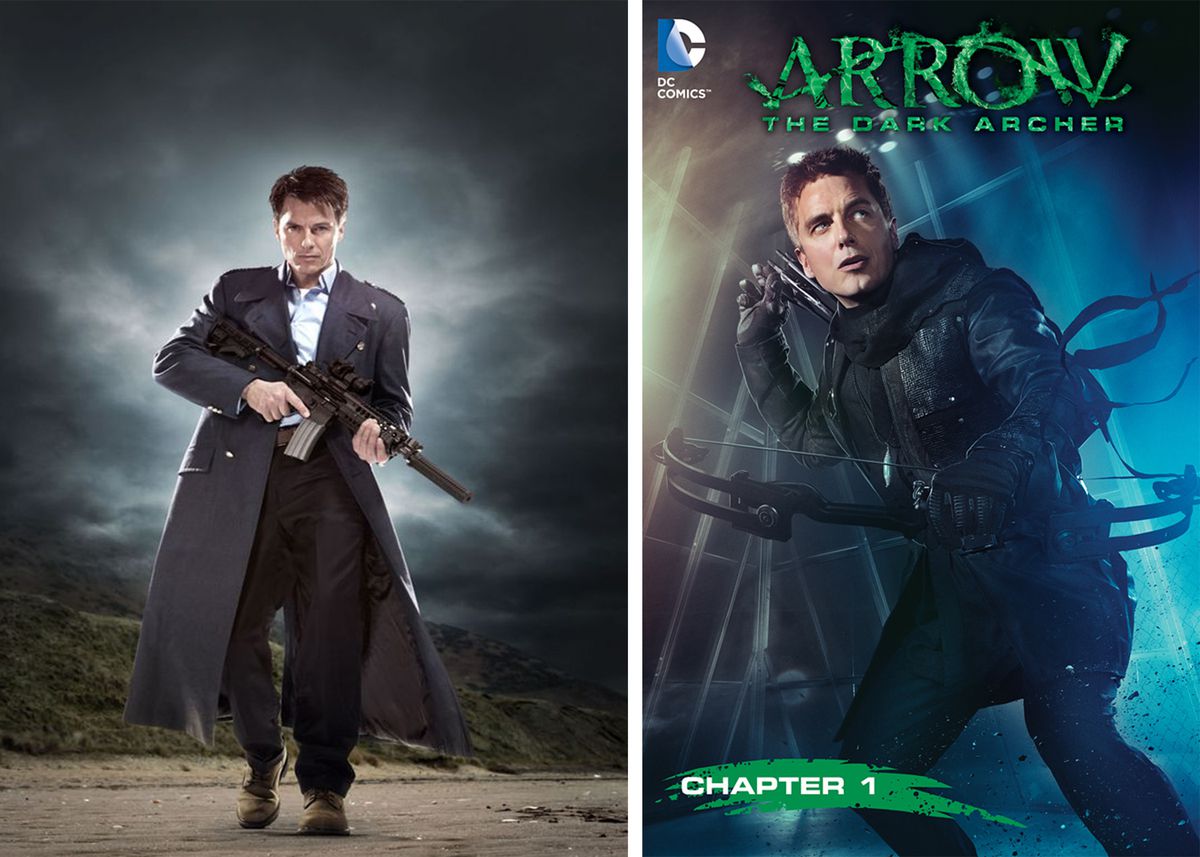
John Barrowman as Captain Jack Harkness in “Doctor Who” and “Torchwood” and as The Dark Archer Malcolm Merlyn in “Arrow”Left: BBC, Right: DC Comics
Barrowman discussed a recent exchange with fellow “Celebrity” castmate and British football manager Harry Redknapp:
“I had this conversation with Harry who apparently had never met a gay man before he met me in the jungle, which I find hard to believe as I know there are gay footballers out there.
“If people are fearful of coming out because of their job, they’re stupid. Because there are so many ways and people around to protect them now… Think of how many lives you will save… if you come out and be your true self and show that you can be successful and can live your life and not worry about stereotype, you are going to help maybe that one kid who is struggling and possibly on the verge of doing something drastic in their life because they feel they are shut down and can’t be who they are.”
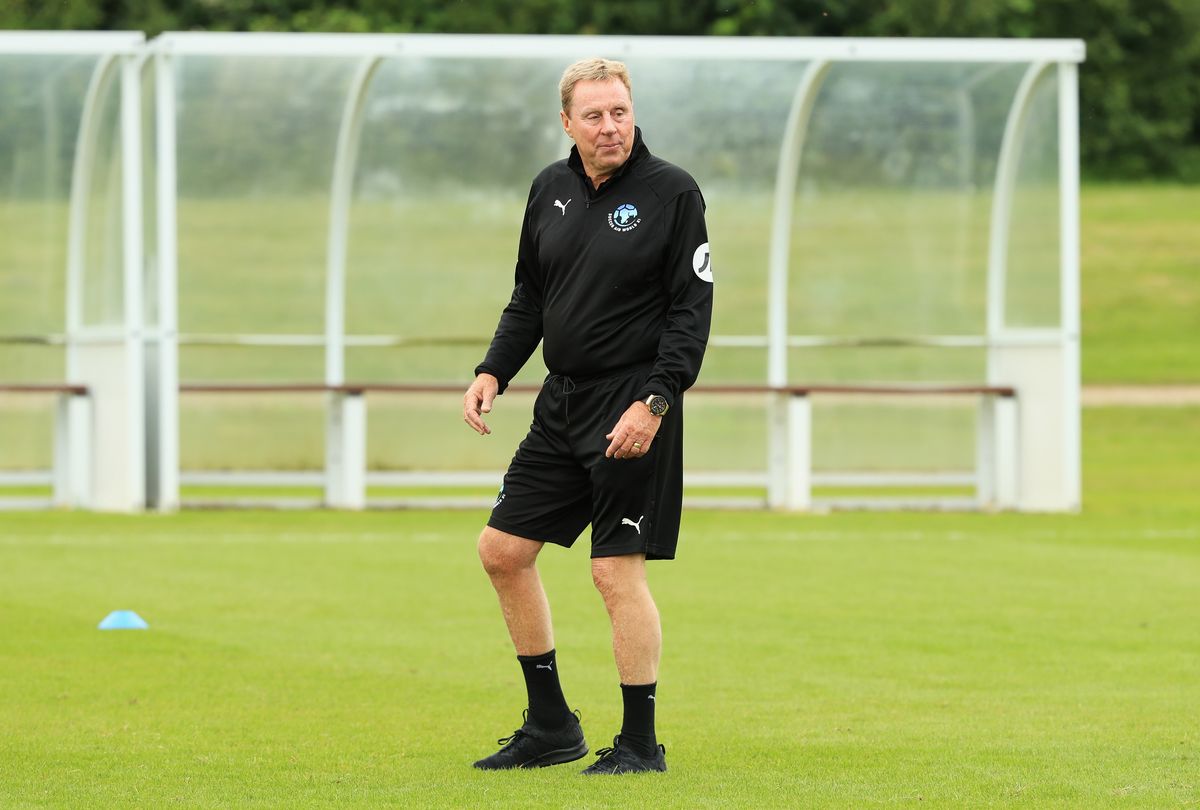
Harry Redknapp, in a rare photo without blinders to the world that surrounds him.Photo by Andrew Redington/Getty Images
Barrowman’s comments highlight the dilemma that gay athletes in professional athletics face in every country. Simply put, many teams in major league sports give positions of power to figures like Harry Redknapp, who labor under the impression that no one in their league is gay — a statistic probability so minute that it can only be described in terms like “Baltimore Orioles winning percentage.”
And because athletes don’t know how authority figures like Redknapp will react, it makes it that much harder to come out and live their truth.
Last year, for example, former MLB manager Dusty Baker discussed this very issue with The Athletic’s Ken Rosenthal…
Guess what? There are some gay guys in baseball. They must be tortured inside (not revealing their sexual orientation), but they’re blessed with the ability to play baseball.
It’s a fear that cuts across all sports. But as Barrowman went on to say, the reward for overcoming that fear is the opportunity to “make history.” Fortunately, recent events reinforce Barrowman’s point by providing several examples of professional athletes being thrust into prominence and assuming heroic roles after publicly coming out.
Foremost among these history making figures is Jason Collins, a former center for several NBA teams who came out in a Sports Illustrated cover story after the 2012-13 season. This was one instance where the infamous SI cover jinx did not manifest itself, as Collins became one of the leading figures of hope and inclusivity from that day forward.
Normally, a retired NBA player who put up lifetime stats of 3.6 points and 3.7 rebounds per game is subjected to a lifetime of answering questions that range from “What’s Shaq really like?” to “What’s LeBron really like?” But because Collins was the first active player in his league to take the brave step of coming out, it ensured that he would never be lost in the crowd of thousands of anonymous ex-ballers.
Instead, Collins became the rare back-up center to be invited to the State of the Union as a guest of Michelle Obama. And since retirement, Collins has remained a fixture of the civil rights movement, serving as an ambassador for NBA Cares and the Stonewall Inn Gives Back Initiative.
Additionally, the Brooklyn Nets have established an annual Jason Collins Award for Courage and Leadership presented during the team’s annual Pride Night celebration.
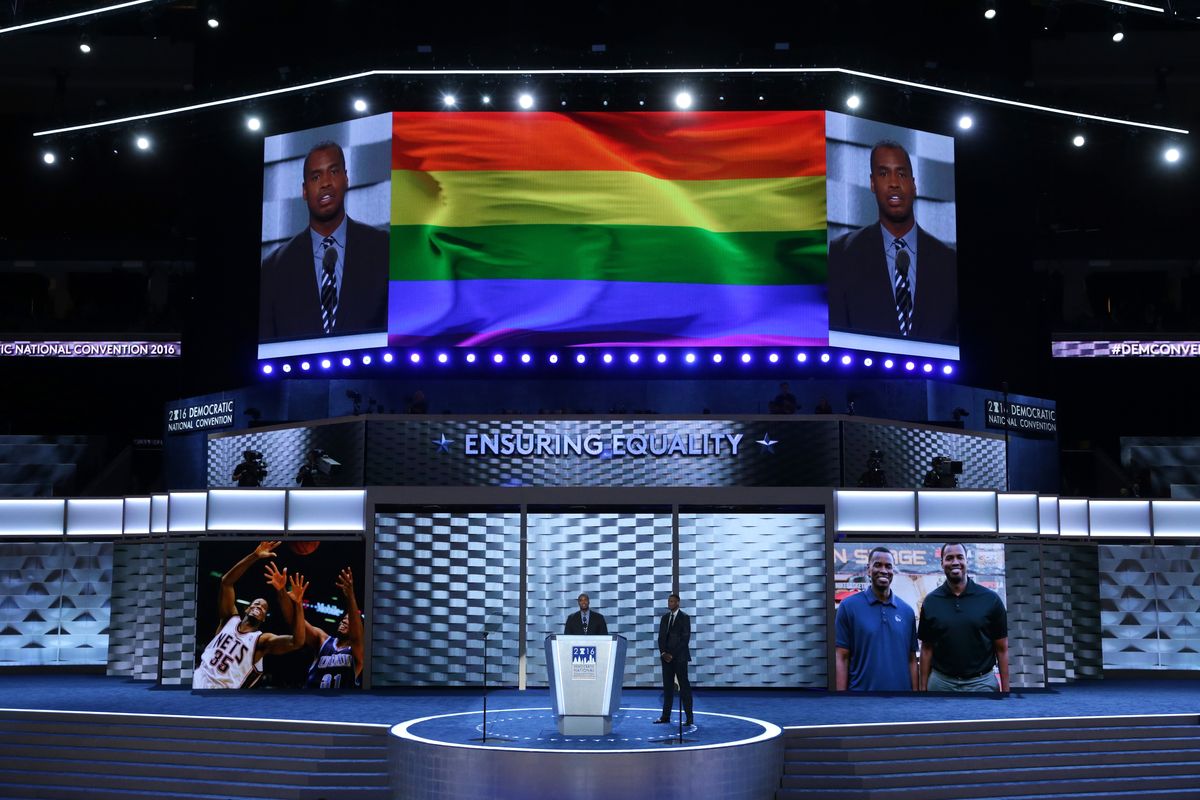
Jason Collins comes off the bench to address the 2016 Democratic National Convention.Photo by Alex Wong/Getty Images
And Collins is hardly alone in being celebrated and supported as a role model for out athletes. After coming out during his tenure with Minnesota United in 2018, Collin Martin earned an appearance on The Late Late Show with James Corden and even got to play a round of “Late Late Live Tinder.”
Meanwhile, following a national championship with the Baylor women’s basketball team, Brittney Griner publicly came out and subsequently signed an endorsement deal with Nike as soon as she turned pro. And while she spent her college career at Baylor being true to herself, Griner’s alma mater finally dropped its ban on “homosexual acts” two years after she graduated.
Within the past decade, British sports have seen cricketer Steven Davies and rugby star Gareth Thomas come out and maintain prominent lives in the public eye, with Thomas receiving Stonewall’s Hero of the Year award.
Every one of these athletes are living examples of Barrowman’s assertion that coming out in professional sports would be equivalent to making history. As he predicted, all of them found a support system in the culture ready to lift them up. And that support system is still there and waiting for the next prominent athlete to live their truth.
All of this makes the wait for the next sports star to come out feel frustratingly long at times. Outsports will be addressing this topic with a special panel about the dearth of male athletes coming out at Outsports Pride 2019 beginning June 6 in Los Angeles.
As Barrowman stated, every gay athlete who opens up about who they are influences countless others who are struggling with their identity in the best possible way. Hopefully, we’ll have another heroic story to write about soon in the world of pro sports.


